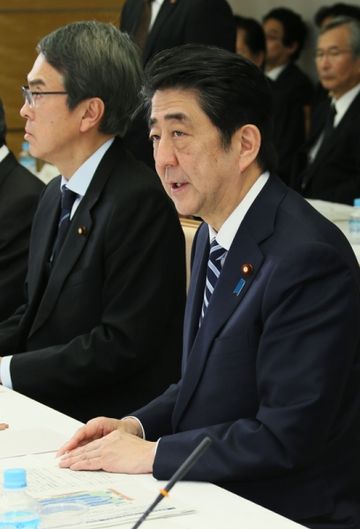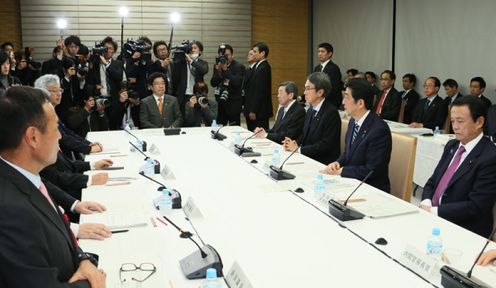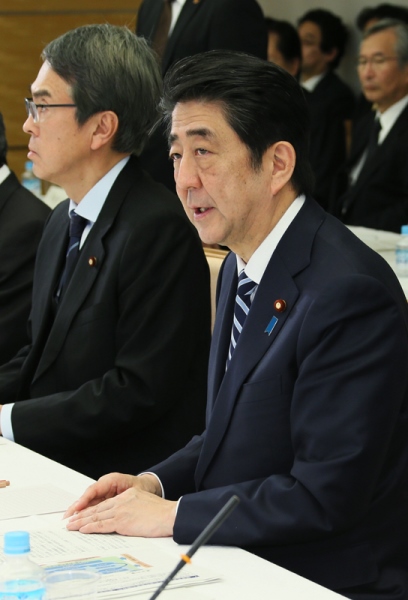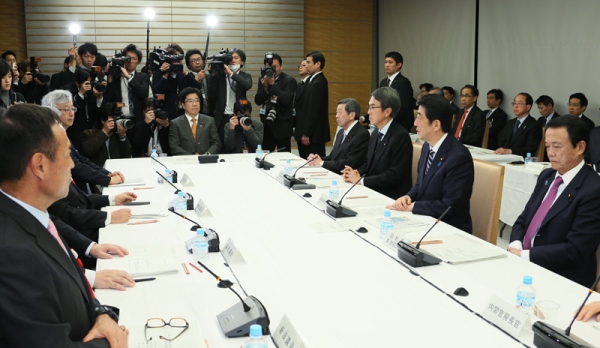Home > News > The Prime Minister in Action > February 2016 > Meeting of the Council on Economic and Fiscal Policy
The Prime Minister in Action
Meeting of the Council on Economic and Fiscal Policy
February 18, 2016

Photograph of the Prime Minister making a statement (1)

Photograph of the Prime Minister making a statement (1)

Photograph of the Prime Minister making a statement (2)
[Provisional Translation]
Prime Minister Shinzo Abe held the second meeting in 2016 of the Council on Economic and Fiscal Policy at the Prime Minister's Office.
At the meeting, there was “intensive discussion related to monetary policy, commodity prices, and other issues” and discussion about “actualizing latent demand aimed at ‘the positive cycle of growth and distribution.’”
Based on the discussion, the Prime Minister said in his address,
“Abenomics has brought about stable growth in Japan’s economy with increases in worker income and corporate earnings.
We will continue to closely monitor trends in the global economy and international markets and deepen our international coordination, including coordination with G7 nations, in an effort to achieve further growth of the global economy and stability in international markets.
Therefore, we will exert every effort toward passing as soon as possible the budget for FY2016, which represents the single greatest economic measure. I would also like the relevant ministers to quickly and steadily implement the FY2015 supplementary budget.
The trends of the spring wage offensive are also important for increasing consumption. In particular, I ask that companies with increased earnings lift wages more than last year. I ask the relevant ministers to make the necessary preparations to establish an environment conducive to such wage increases.
I expect that the Bank of Japan’s recently introduced ‘quantitative and qualitative easing with negative interest rates’ policy will lower interest rates on home loans and loans to small- and medium-sized enterprises, resulting in an increase in consumption and investment.
I would like the relevant ministers to thoroughly disseminate information about such effects.
To realize the goal of a 600 trillion yen economy, it will be extremely important to spur new demand.
We must further increase disposable income, which has made the shift from falling to increasing under Abenomics, by hiking wages and the minimum wage, and in turn actualize demand in the fields of health and longevity, childcare services, and inbound tourism, among others. Under the leadership of Minister Ishihara, I ask the relevant ministers to work together to crystallize policy, including regulatory reform.”


